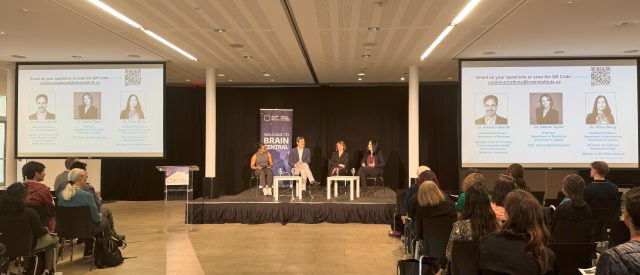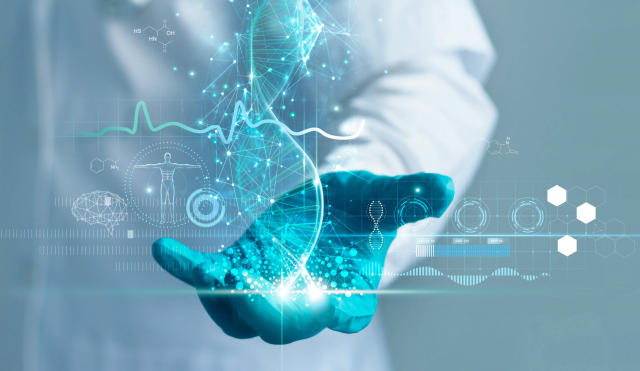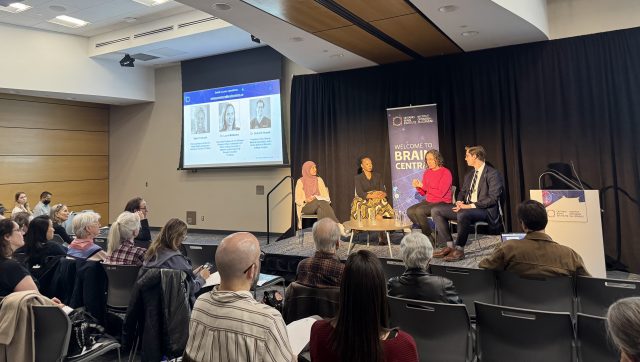What happens when the brain and the gut talk to each other? Our expert panelists, alongside moderator Dr. Olivia Ghosh-Swaby, gathered to explore this question and many others at OBI’s 2025-26 Breakthroughs in Brain Science series kickoff.
Featured Panelists:
- Dr. Premysl Bercik
Professor, Division of Gastroenterology at the Department of Medicine at McMaster University, and Member of the Farncombe Family Digestive Health Research Institute.
- Dr. Valerie Taylor
Professor at the Department of Psychiatry at University of Calgary and CEO of Taylored Biotherapeutics.
- Dr. Chao Wang
Assistant Professor at the Department of Immunology at University of Toronto, Scientist at Sunnybrook Research Institute, and Member of the POND Network.
What’s a Brain-Gut Axis?
You’ve probably seen the term “brain-gut axis” trending online, but what’s behind the buzz? Our expert panel unpacked the science for us.
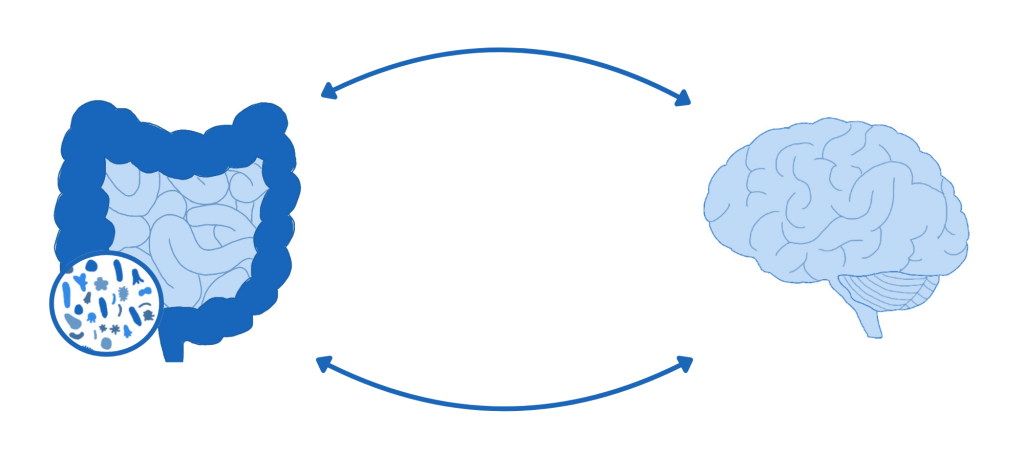
The brain-gut axis is made up of three main parts:
- The Brain
- The Gut (the intestines and other organs, also called the gastrointestinal or GI system)
- The Gut Microbiome (Trillions of tiny organisms, or microbes, living in the gut)
Dr. Bercik explained that these gut microbes form a complex, harmonious community of different types of bacteria, fungi, viruses, and more. Often called a ‘supporting organ,’ the gut microbiome plays a vital role in our health: it helps us break down medications, absorb nutrients from food, and defend against infections.
Dr. Taylor highlighted that the relationship between the brain and the gut is a two-way street. As she puts it, “your gut impacts your brain [and] your brain impacts your gut.” This bidirectional communication happens through multiple pathways, such as the immune system and the vagus nerve.
When thinking about the brain-gut axis, Dr. Wang offered this insight: “So think of this as a whole ecosystem. You’ve got microbes, your internal gut system, and your immune cells. They have to cooperate with each other and create a symbiotic environment. And when any part of that goes wrong, that can cause problems.”
Let’s put our understanding of the brain-gut axis to the test with a few “True or False” questions.
True or False: Brain health is all in the brain.
False! Since the brain and gut communicate both ways, the gut can also affect brain health.
- Dr. Bercik’s work with mouse models showed that germ-free mice behaved differently once colonized with bacteria. Even a single strain of bacteria can change brain chemistry and behaviour!
- Dr. Taylor’s research specifically focuses on gut-based treatments for mental health. She found that transferring stool from humans with depression into germ-free mice led the mice to exhibit depression-like behaviours.
- Dr. Wang also mentioned how her work has shown that gut problems in children with autism may be linked to challenges with social communication.
True or False: The brain-gut connection can be thrown off balance.
True! Dr. Wang pointed to inflammation as a fundamental factor in impacting the axis. While inflammation is necessary for healing and fighting against infections, too much of it can do more harm than good.
Excessive inflammation can happen in two ways:
- The immune system responds appropriately to a threat like an infection or trauma, but the “brakes” fail, and inflammation continues unchecked.
- The immune system mistakenly targets and attacks the body’s own tissues.
When this happens near the brain-gut axis, it can interfere with communication between the brain and gut. In more severe cases, as Dr. Wang explained, excess inflammation may even contribute to conditions like leaky gut syndrome, where tiny holes in the gut lining allow microbial byproducts to escape and trigger widespread inflammation.
True or False: There are steps I can take to protect my brain-gut axis.
True! Some things are beyond our control, but there are lifestyle choices we can make to protect our health. Dr. Taylor explained that getting regular sleep, staying properly hydrated, and eating more high-fiber foods and vegetables and less processed foods are important in maintaining our health.
There are also other relevant factors to keep in mind. Dr. Bercik cautioned against using commercial microbiome testing kits, “We don’t know really what is normal, what is healthy, [and] what is unhealthy [when it comes to microbiomes].” Right now, these tests may not offer the deep insights needed to understand how different microbes affect our health.
Recognizing Ontario’s Commitment to Research Excellence
Before our expert panelists sat down to discuss, the Honourable Nolan Quinn, Minister of Ontario Colleges, Universities, Research Excellence and Security, offered opening remarks, explaining the importance of investing in brain health research.
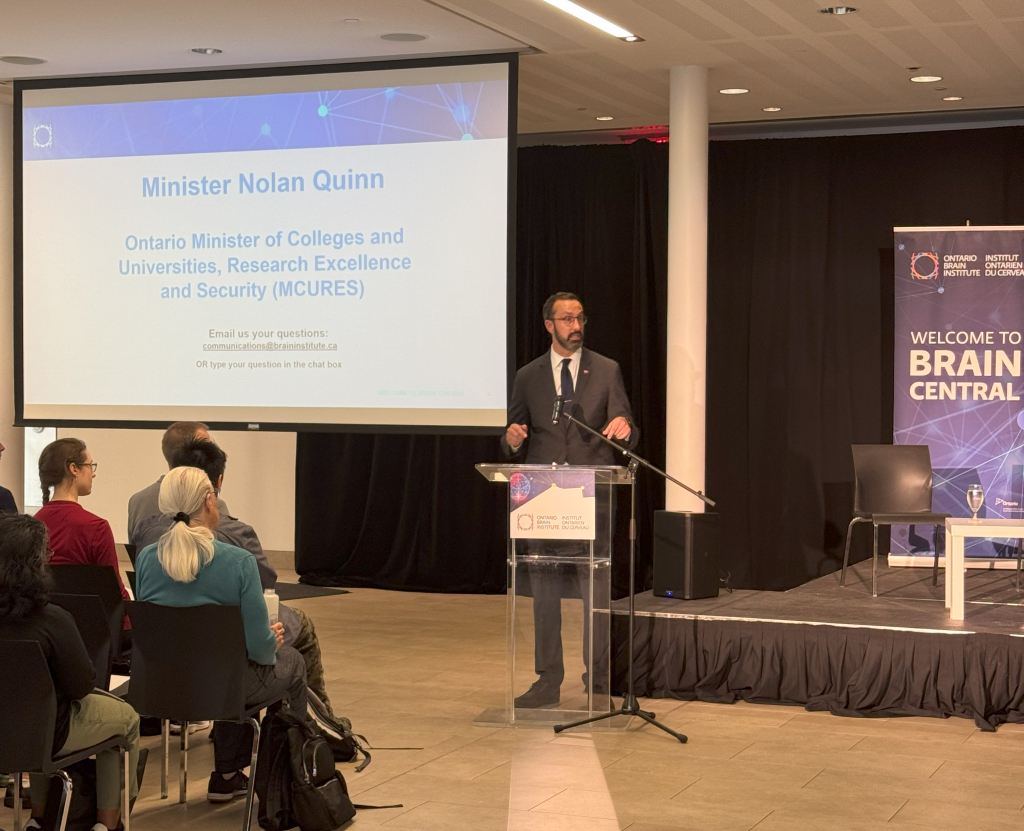

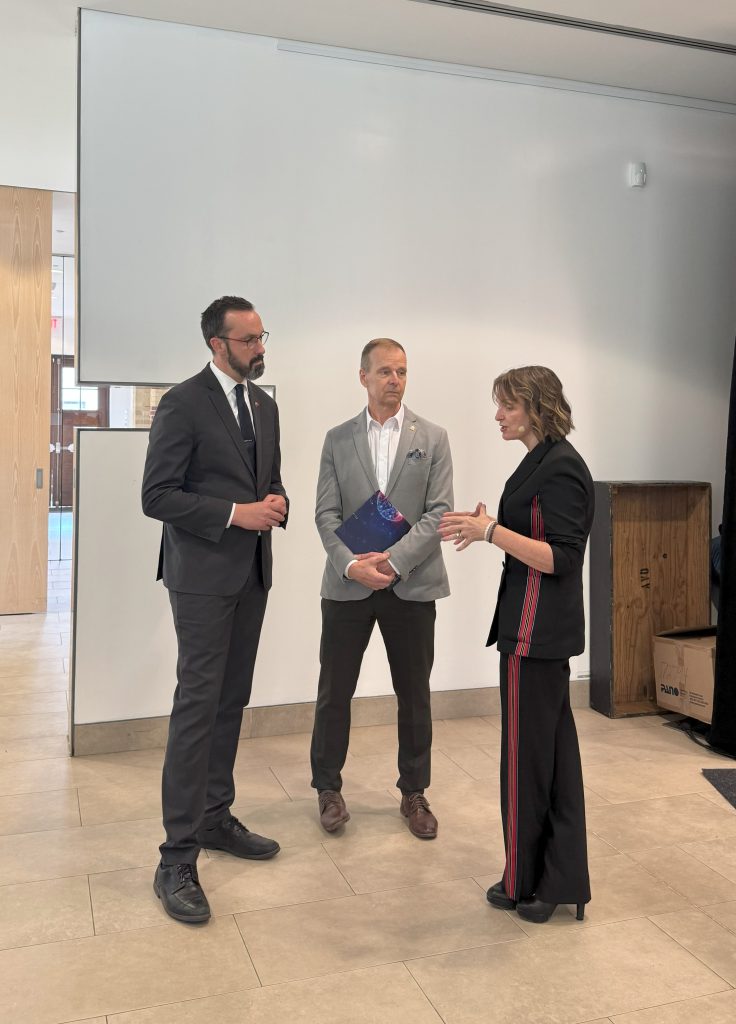
As he graciously stated, “OBI is a prime example of Ontario’s incredible capacity for research excellence. […] OBI is improving people’s health, creating jobs, and strengthening our economy. […] Our government knows that when we invest in research, we invest in a brighter future for all of Ontario.”
Final Takeaways from Our Panelists:
- Dr. Valerie Taylor emphasized that our understanding of the brain-gut axis and mental health has really evolved over the years and continues to do so. In her words, “we’ll get better answers and better treatments, and so there is a lot to really be excited about in this space!”
- Dr. Premsyl Bercik echoed Dr. Taylor’s optimism. He added that as we learn more about how the gut and brain talk to each other, treatments may become more personalized instead of one-size-fits-all.
- Dr. Chao Wang reminded us that supporting brain-gut health isn’t only about sleeping and eating well. It’s also about engaging with scientists and clinicians. Public-facing events like this one “…touch ground and help raise the impact of what we’re doing here, so keep on coming to these events!“
Want to hear more from this panel? Check out the replay of “Exploring the Brain-Gut Axis”
RESOURCES
OBI Blogs
- Your Brain on Food > tinyurl.com/brain-on-food-blog
- Six Tips for Brain Health > braininstitute.ca/health-tips
- You Really Are What You Eat > tinyurl.com/what-you-eat-blog
- Precision Medicine: Improving Tomorrow’s Health Today > tinyurl.com/precision-medicine-blog
Partner Resources
- Dr. Premysl Bercik’s Lab > bercik-collins.com
- Dr. Valerie Taylor’s Lab > vtaylorlab.ca
- Dr. Chao Wang’s Lab > immunology.utoronto.ca/faculty/chao-wang
